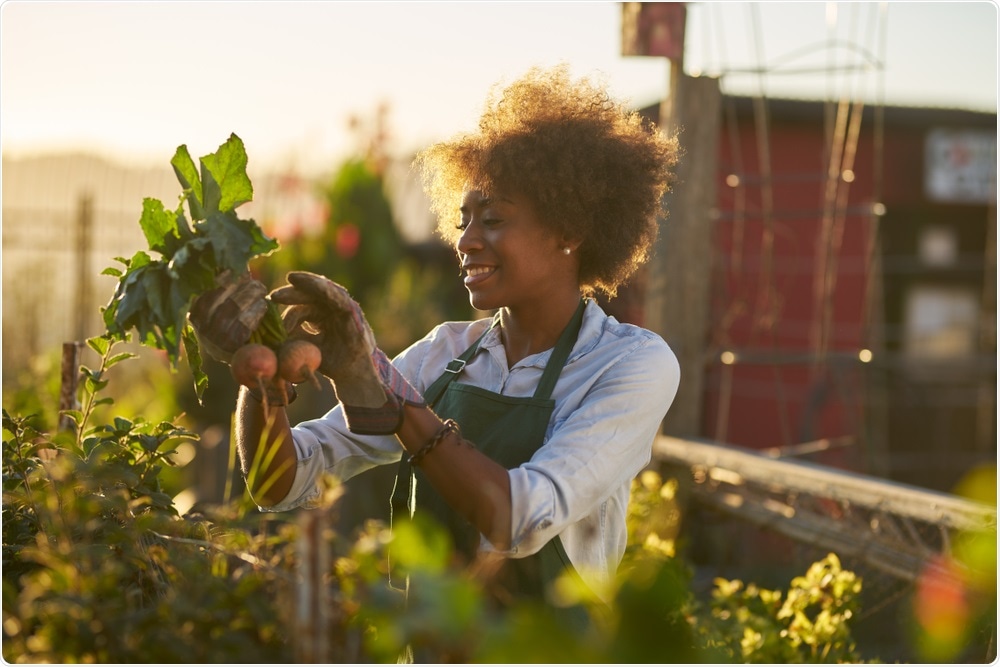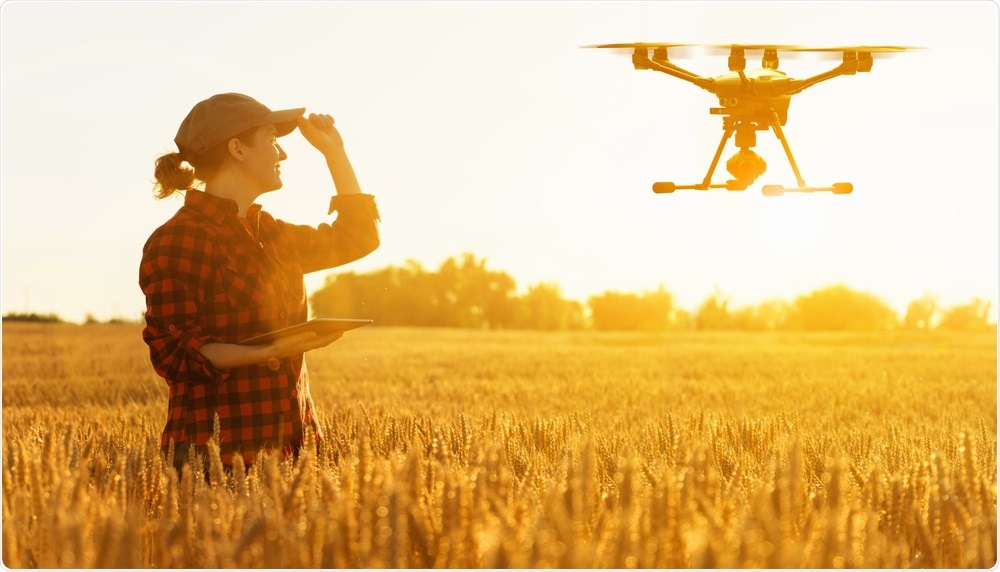The book is important because the project started out with me in 2016 as a reporter at the Salinas California. I was assigned to cover government and along with that, agriculture in the Salinas Valley. The Valley has a $9 billion industry. The industry is significant in terms of providing leafy greens to the rest of the country.
But I noticed there were not a lot of women in the field in terms of leadership positions and decision-making in traditional agriculture. But in turn, there was a growing sector called agtech five years ago, and the city of Salinas and surrounding cities really wanted that sector to grow as a part of developing their local economy.
I noticed there appeared be a shortage of women in agriculture and agtech. Yet I believed that there were women in the industry. So I started to ask the question: Are there any minority women entrepreneurs in agtech? Can I tell their stories? It was a goal of uplifting their voices. So from there, I did a documentary and I shared some of their stories and their profiles. And we had maybe about half a dozen women in the beginning and a lot of it was word of mouth.
I found their stories interesting. I found a lot of them had commonalities, such as really wanting to take on big changes. And a lot of them came from strong agricultural backgrounds. In 2017 I shared a handful of their stories in an award-winning documentary entitled “From Farms to Incubators: Telling the stories of minority women entrepreneurs in agtech in the Salinas Valley and beyond.”
I could’ve stopped there with the documentary and the series in The Californian. But as time went on more and more stories were unearthed. Someone would call me and say, “Have you talked with this woman or that woman? Have you called this company or that company run by a woman?” And it turned out there were dozens of inspiring stories of women founders or leaders in the area of agtech.
Are there any minority women entrepreneurs in agtech? Can I tell their stories? It was a goal of uplifting their voices."
There were too many stories to ignore, so in 2018 I decided to put it in the form of a book. I think the book is important because it’s really a piece of history. Their stories, I think, will inspire, hopefully, young people to consider careers in agriculture and see that agriculture is more than just tractors and overalls.
There’s a lot of opportunity in agriculture in terms of marketing, in terms of big data as well. I think in general the bigger picture in this challenging time, I think people in business who face challenges and find solutions and find successes are often inspiring. So the bigger picture would be leadership.

Woman picking crops. Image Credit: Joshua Resnick/Shutterstock.com
Tell us about AgTech and the women whose stories you have told.
There are dozens of women who have shared their stories of professional talents and opportunities for this book. They’re not just from California. They’re from Salinas Valley, they’re global and from across the country. So who would benefit would be, first of all, those growers, investors, policymakers, anybody who is interested in learning more about agtech and agriculture would benefit. Anybody who wants to connect with these women would benefit and anybody who cares about where your food comes from and who’s growing it.
The women I am profiling are creating the innovations and technology to help farmers “be more subsistent and basically grow better.” They’re saving money because farming is an expensive industry. They’re also feeding the world. There’s a forecast that says by 2050 the population will be close to 10 billion people and growers internationally are being faced with pressures to feed the world.
You have put together a book, an exhibition and a documentary on this work. What impact do you hope this will have?
One of the big impacts of this book was to inspire a new generation who will consider future opportunities in food and farming. And this could be anything from future farming to being one of the people creating innovations for the farmers.
The question might be why did I spend so much time writing the stories and writing the book, because right now I think there’s a change and a potential opportunity for a paradigm shift. The demographics of the country have been changing. It’s a lot more diverse. But on the other hand, traditional farming is at a bit at risk, because the older generation of farmers are retiring and their sons and daughters are not necessarily interested in farming. So this leads to who is going to take over the helm or the opportunities to get into the industry.
There’s an opportunity there for people of all different backgrounds and all different genders and races and stories and experiences. So the message I’m trying to send across is food and farming and innovation are open to anybody and it’s changing.
Hopefully, young people will read the stories and say, “That could be me.” Seeing people who look like them, I think, would often help. That is why I decided to focus on female founders, especially females of color. It is a real mix, though. We have women who are children of immigrants and we have another woman who is a ninth-generation farmer herself. We have a woman who was a field worker who had dreams of owning her own farm. So it’s a really a spectrum of stories, and I wanted it to be that way.
From Farms to Incubators: Spotlighting Women Innovators Working to Solve Farming Challenges
How has the COVID-19 pandemic impacted your work and how do you think women in agriculture have had to adapt?
COVID-19 has contributed greatly to investor and consumer interest in agtech.
Please see a recent piece I wrote that addresses this.
https://www.worth.com/female-agtech-innovators-driving-food-system-aiding-farmers-amidst-covid-19/
What have you learned from the women you have worked with?
The women who I have worked with are incredibly inspiring and their professional and personal stories are incredibly diverse.
Despite their diverse backgrounds and unique stories, the women shared numerous commonalities including, but not limited to, the following:
- A passion for changing the world for the better through their technology
- A passion to solve big problems with impact
- A desire to give back and create a community of like-minded people
- A desire to get away from corporate politics to a more merit-based environment and to be able to better execute their vision
- A passion for creating something new and innovative that others have not done or been able to do
Simply put, they have taken the ball and run with it. The question now was whether investors and growers would welcome their innovations with an open mind.
How is agriculture adapting to increasing global populations?
Growers will face the challenge of feeding a population estimated to be 10 billion by 2050 and there is a decline in farmable land due in part to soil depletion. Agriculture is adapting by adopting new farming strategies many of them surrounding regenerative practices with the goal of promoting biodiversity and soil health. These practices are now being adapting by both conventional and organic growers, and examples are crop rotation, cover cropping, incorporating native meadows and livestock into farming, composting, and committing to reduced tillage or minimum-till.
In addition, there are new ways to grow foods related to hydroponics and aquaponics.
What innovative technologies are you currently keeping an eye on and how will they change the future of farming?
Just to name a few--drones, artificial intelligence, sophisticated soil sensors, data analytics, blockchain, and robotics. The common theme among these various technologies is that they provide farmers the knowledge and information to be more efficient in their work. This can lead to cost savings and higher yield and better quality produce.

Woman with Drone. Image Credit: Scharfsinn/Shutterstock.com
Climate change is one of the most important issues in the world today. How is agricultural technology incorporating sustainability into the future of farming and how are you supporting this?
Agtech is a necessity, I feel, in providing solutions to some of the biggest challenges growers are facing. Many of these challenges have been caused by climate change. Some of these include a significant loss of farmable or arable land, water and land management issues, soil depletion, and climate changes that have created a shift in crop plans.
Vegetarianism and veganism are on the rise in many areas of society. How do you think these diets fit into the modern world of agriculture?
I think it is important that we all have the freedom to commit to diets that we are comfortable with health first and foremost. I am not an expert in vegetarianism and veganism and am not a vegetarian or a vegan, but I feel this certainly extends the market for growers, agribusiness, and start-ups that cater to vegans and vegetarians.
How do you think the world of agriculture needs to change to be more inclusive of minority women?
I feel strongly this should be the case for all women and not exclusively women of color. Agriculture and agtech remain male-dominated sectors although this is slowly shifting. Agriculture specifically agribusinesses that range from start-ups to multinational corporations should consider a range of perspectives and voices when it comes to building their teams. The team includes key management with decision-making power and also a board of directors.
Conference organizers should consider including more women at the holding of programming and the chairing of conferences. We need more keynote speakers and panelists who are women leaders and innovators. More women need to find the opportunity to work together and collaborate to create change.
Recently a group of women leaders in agtech and I launched a searchable directory searchable Airtable directory that lists the names and social media platforms of women founders and leaders in agtech in the U.S. and internationally. This list is the result of a collaboration between myself and women leaders in agtech including Connie Bowen (AgLaunch Initiative), Allison Kopf (Artemis Ag), Pam Marrone (Marrone Bio Innovations), and Louisa Burwood-Taylor (AgFunder News).
You can learn more about it here https://www.farmstoincubators.com/resources
https://agfundernews.com/author/connieandamy
What do you imagine the future of farming and agriculture to look like?
Innovation including digitization will be a critical part of farming and agriculture. Farmers will depend on a balance of technology and human power to produce food that will feed what is projected to be 10 billion by 2050 globally.

Amy Wu's Latest Book Cover. Image Credit: Amy Wu
Where can readers find more information?
From Farms to Incubators: www.farmstoincubators.com
Documentary trailer: https://vimeo.com/274583785
An online sample of the book: https://issuu.com/ksorsky/docs/farmstoincubators
Follow From Farms to Incubators on Facebook @farmstoincubators
About Amy Wu
Amy Wu is an award-winning writer for the women’s ag and agtech movement.
She is the Founder & Chief Content Director of From Farms to Incubators, a multimedia platform that uses documentary, video, photography, and the written word to tell the stories of women leaders and innovators in agtech. It has a mission of highlighting women in food, farming, and farmtech, especially women of color.
From Farms to Incubators includes a documentary and a forthcoming book that spotlights women leaders in ag and agtech. The documentary and stories have been screened and presented at SXSW and Techonomy. The initiative was awarded grants from the International Center for Journalists and International Women's Media Foundation's Howard G. Buffett Fund. In 2020 Amy was named on Worth magazine’s “Groundbreakers 2020 list of 50 Women Changing the World” list.
Prior to starting From Farms to Incubators, Amy spent over two decades as an investigative reporter at media outlets including the USA Today Network where she
reported on agriculture and agtech for The Salinas Californian. She’s also worked at Time magazine, The Deal, and contributed to The New York Times, The Huffington Post, and The Wall Street Journal.
She earned her bachelor’s degree in history from New York University, and master’s degree in journalism from Columbia University. She is also an avid open water swimmer and completed the 28.6 mile Manhattan Island Marathon swim in 2010.